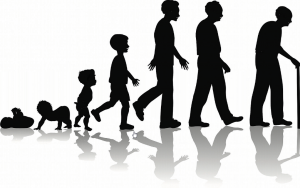 I am celebrating a birthday this month. Often, when people know that, the braver souls venture forth and ask me “how old will you be?”
I am celebrating a birthday this month. Often, when people know that, the braver souls venture forth and ask me “how old will you be?”
Before answering that question, though, I should really consider ‘which’ age I should share. We have different ages.
We have our chronological age, based on the number of years we have been alive on this earth.
We have our subjective age, based on the age we personally identify with – the age that we feel we are.
We have our biological age, which quantifies the rate at which your tissues, organs, and blood are aging.
Everyone is familiar with our chronological age, so let’s review our subjective and biological ages.
Subjective Age
Satchel Paige asked a provocative question:
“How old would you be if you didn’t know how old you are?”
That is your subjective age, and it is getting a lot of attention from researchers.
According to a 10 year prospective study (conducted by Yannick Stephan, Joban Caudroit, Alban Jaconelli, Antonio Terracciano,) a younger subjective age at the baseline stage of the study was associated with better episodic memory and executive function scores at follow-up stages of testing.
Consistent with other studies, their participants reported feeling about 19% younger than their chronological age. A younger subjective age (SA) was…”more typical of older adults, those with higher education, lower disease burden, higher physical activity level, and lower Body Mass Index (BMI) at baseline. “
As we can see, participation in healthier lifestyles is associated with younger SA scores. Improved episodic memory may be the result of a lower likelihood of being overweight or obese, and improved executive functioning may be impacted in part through the engagement in regular physical activity.
It should be noted that influences and factors are inter-related. Those persons with younger SA scores and with higher memory self-efficacy are more likely to participate in intellectually stimulating activities. Furthermore, individuals reporting younger SA numbers may also be less impacted by societal negative stereotypes of aging. Bottom line – persons with…”a younger self-image are more likely to maintain a socially, intellectually, and physically active lifestyle, which in turn is beneficial for the cognitive functioning.”
The authors of this study caution that there is much more work to be done in this area. Is the relationship one of causation or co-relation? Studies need to be conducted to see if manipulation of your SA can influence cognitive performance over time. Although the relationship between SA and BMI and physical activity is supported in this study, it is plausible that the healthy BMI and activity levels influenced the younger subjective age – wholly or in part.
A more recent study (conducted by Seyul Kwak, Hairin Kim, Jeanyung Chey, and Toosik Youm,) looked at subjective age and brain health. They found that SA is in fact closely related to the process of brain aging. A subjective age OLDER than their chronological age is co-related to poorer biological markers. The older subjective experience of aging may be the result in part of awareness of already existing cognitive decline. Bottom line – those reporting older SA scores may be reflecting faster aging brain structures, while those reporting younger SA scores may have better preserved and healthier brain structures.
Conclusion
It appears that our chronological age is helpful in indicating when we can legally vote, drive, drink, and access seniors discounts. Beyond that – this number may not be particularly meaningful nor helpful. Our lifestyle, sense of agency over ourselves and our environment, our personal and general feelings and perceptions of aging, our physical and brain health, as well as the rate at which our cells and tissues are aging, all conspire collectively to reveal a picture more compelling and complex.
Perhaps I will forfeit the need to assign any number to my birthday celebration this month. Perhaps I will simply appreciate the opportunity to continue to embrace (for however long I can) moments of wonderment, challenge, growth, tears, love, and laughter.
Rhonda Latreille, MBA, CPCA
Founder & CEO
Age-Friendly Business
Our Biological Age
Your “phenotypic age,” or more commonly known as your biological age is a number based on various biomarkers. The good news is that a number of these biomarkers can change with lifestyle and health modifications.
Biological ages reflect a combination of genetics, accumulated lifestyle, and other determinants such as demographics, diet and exercise habits. The older we get, the greater the influence of lifestyle over genetics.
Aging
“Youth is the gift of nature, but age is a work of art.”
Stanislaw Jerzy Lec


0 Comments